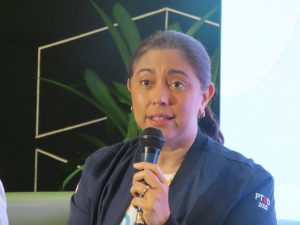The City Council has passed on first reading a proposed legislation that will create a food corridor.
The proposal, which was first sponsored by former councilor Marissa Abella when she was still head of the agricultural and food committee, was submitted to the same committee which is now headed by Abella’s husband, Ralph.
Based on the draft of the proposal, the creation of the food corridor is intended to protect areas in the City that are well suited for agriculture and to protect existing farms and agricultural activities for food production and food sufficiency.
It is also eyeing to minimize conflicts between incompatible uses by directing non-farm residential uses to other districts within the city.
The food corridor is deemed to “protect and promote the continuation of farming and agriculture within the Food Corridor, including the areas inside the food corridor that have developed compatible residential patterns and transportation infrastructure.”
It shall also permit primarily agricultural land uses and activities; separate agricultural land uses from potentially incompatible residential, commercial, and industrial development, and public facilities that may interfere with normal agricultural operations; and, promote continuation of agriculture, economic development, and natural resource protection.
It eyes to preserve wetlands and natural areas associated with farms used as water retention and ground-water recharge areas, and as wildlife habitat, and those that have an important aesthetic and scenic value, which contributes to the unique character of the community.
“The proposed ordinance will also encourage the viability of agricultural soils for agricultural use,” the draft ordinance said.
Once the ordinance is passed, it shall enhance food self-sufficiency, including food for local people, reduced energy consumption, and employment opportunities in the community.
To roll out the proposed ordinance, a master plan or a development plan for the food corridor shall be crafted to serve as the general plan for the future layout of the Food Corridor showing both the existing and proposed infrastructure projects; existing farms; protected prime agricultural lands, farms, and farm operations; existing non-agricultural establishments; and the proposed areas where non-agricultural activities and structures can be established.
“The master plan shall be the blue print for the future of the Food Corridor,” it said.
The ordinance will also create the Food Corridor Council (FCC) composed of the City Planning Officer as Chairman, City Veterinarian, City Agriculturist, the representatives from the sectors of livestock and poultry, fisheries and crops, as
members.
The FCC will oversee the development of the food corridor in accordance with the intents of this ordinance; and evaluate, review and approve all applications for non-agricultural uses and activities within the Food Corridor before a Locational Clearance is issued by the City Planning and Development Office.
It will also recommend incentives to be given to the agricultural sector within the Food Corridor to encourage increase in production, innovations, and the use of the good agricultural practices; and implement the Master Plan for the Food Corridor.


